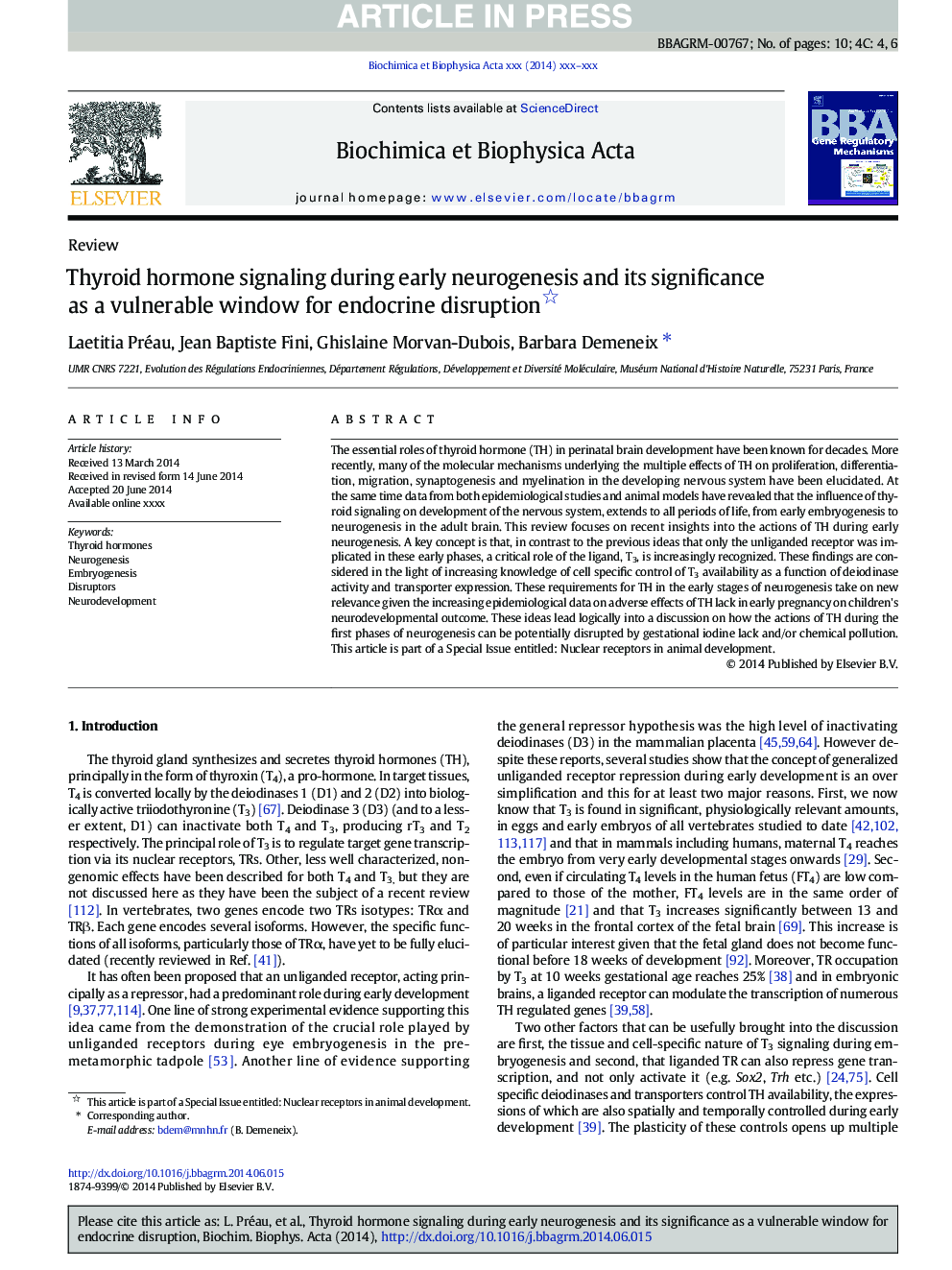| Article ID | Journal | Published Year | Pages | File Type |
|---|---|---|---|---|
| 10799063 | Biochimica et Biophysica Acta (BBA) - Gene Regulatory Mechanisms | 2015 | 10 Pages |
Abstract
The essential roles of thyroid hormone (TH) in perinatal brain development have been known for decades. More recently, many of the molecular mechanisms underlying the multiple effects of TH on proliferation, differentiation, migration, synaptogenesis and myelination in the developing nervous system have been elucidated. At the same time data from both epidemiological studies and animal models have revealed that the influence of thyroid signaling on development of the nervous system, extends to all periods of life, from early embryogenesis to neurogenesis in the adult brain. This review focuses on recent insights into the actions of TH during early neurogenesis. A key concept is that, in contrast to the previous ideas that only the unliganded receptor was implicated in these early phases, a critical role of the ligand, T3, is increasingly recognized. These findings are considered in the light of increasing knowledge of cell specific control of T3 availability as a function of deiodinase activity and transporter expression. These requirements for TH in the early stages of neurogenesis take on new relevance given the increasing epidemiological data on adverse effects of TH lack in early pregnancy on children's neurodevelopmental outcome. These ideas lead logically into a discussion on how the actions of TH during the first phases of neurogenesis can be potentially disrupted by gestational iodine lack and/or chemical pollution. This article is part of a Special Issue entitled: Nuclear receptors in animal development.
Related Topics
Life Sciences
Biochemistry, Genetics and Molecular Biology
Biochemistry
Authors
Laetitia Préau, Jean Baptiste Fini, Ghislaine Morvan-Dubois, Barbara Demeneix,
